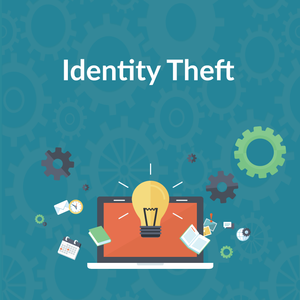Protecting Against Identity Theft

The cost of data breaches increases. The latest annual study from Javelin Strategy & Research, a leading financial analytics research firm, says that 14.4 million people were impacted by I.D. theft in 2018. Roughly 3.3 million of them had to shoulder a financial loss or an out-of-pocket cost due to these crimes. Those losses and costs totaled $1.7 billion, more than double the amount from two years earlier.[i]
Retirees are often portrayed as the main victims of identity theft. By one measure, that is not true: Federal Trade Commission (FTC) statistics show that about three times as many consumers aged 30 to 49 have their identities stolen as consumers aged 60-89. The median financial loss from such crimes is higher for seniors, however.[ii]
The FTC says that credit card fraud increased annually over 2014-2018. While it is the most common kind of identity theft in every age group, it is not the only kind.2
Tax time is prime time for identity thieves. Thieves would love to get their hands on your 1040 form or state tax form, and they would also love to claim a phony refund using your personal information.
When e-filing your tax returns, make sure you use a secure Internet connection. When you e-file, you aren’t putting your Social Security number, address, and income information through the mail. You aren’t leaving a tax form on a kitchen table or desk while you go for a walk or get some coffee.
The IRS doesn’t use unsolicited emails to request information from taxpayers. If you get an email claiming to be from the IRS asking for your personal or financial information, report it to your email provider as spam.[iii]
Use secure Wi-Fi. Avoid “coffee housing” your personal information. In other words, never risk disclosing financial information over a public Wi-Fi network.
Sure, a public Wi-Fi network at an airport or coffee house is password protected – but if the password is posted on a wall or readily disclosed, how protected is it? A favorite hacker trick is to sit idly at a coffee house, library, or airport and set up a Wi-Fi hotspot with a name like the legitimate one. Inevitably, people will fall for the ruse, log on, and get hacked.
Look for the “https://” and the padlock icon when you visit a website. Not just “http://,” but “https://.” The “s” stands for “secure,” and the padlock icon in the address bar signifies that traffic to and from the site is private. For solid security when you browse, you could opt for a VPN (virtual private network) service, which encrypts your browsing traffic.[iv],[v]
Check your credit report. You are entitled to one free credit report per year from each of the big three agencies: Experian, TransUnion, and Equifax. Go to AnnualCreditReport.com (a website created by these three credit bureaus) as a first step to accessing yours.[vi]
Don’t talk to strangers. Broadly speaking, that is very good advice in this era of identity theft. If you get a call or email from someone you don’t recognize – it could tell you that you’ve won a prize; it could claim to be someone from the county clerk’s office, a pension fund, or a public utility – be skeptical. Financially, you could be doing yourself a great favor.
To learn more about CapSouth Wealth Management and the services we provide, call our office at 800.929.1001 or visit our website at www.capsouthwm.com.
Investment advisory services are offered through CapSouth Partners, Inc., dba CapSouth Wealth Management, an independent registered Investment Advisory firm. Information provided by sources deemed to be reliable. CapSouth does not guarantee the accuracy or completeness of the information. This material has been prepared for planning purposes only and is not intended as specific tax or legal advice. Tax and legal laws are often complex and frequently change. Please consult your tax or legal advisor to discuss your specific situation before making any decisions that may have tax or legal consequences.
This article contains external links to third party content (content hosted on sites unaffiliated with CapSouth Partners). The policies and procedures governing these third-party sites may differ from those effective on the CapSouth company website, as outlined in these Disclaimers. As such, CapSouth makes no representations whatsoever regarding any third-party content/sites that may be accessible directly or indirectly from the CapSouth website. Linking to these third-party sites in no way implies an endorsement or affiliation of any kind between CapSouth and any third party, including legal authorization to use any trademark, trade name, logo, or copyrighted materials belonging to either entity.
[i] https://www.iii.org/fact-statistic/facts-statistics-identity-theft-and-cybercrime
[ii] https://www.ftc.gov/system/files/documents/reports/consumer-sentinel-network-data-book-2018/consumer_sentinel_network_data_book_2018_0.pdf
[iii] https://www.irs.gov/newsroom/security-summit-warns-of-new-irs-impersonation-email-scam-reminds-taxpayers-the-irs-does-not-send-unsolicited-emails
[iv] https://www.uab.edu/it/home/about-uab-it/announcements/item/1035-lock-icon-in-url-isn-t-always-a-mark-of-safety
[v] https://www.forbes.com/sites/tjmccue/2019/07/11/best-vpn-services
[vi] https://www.transunion.com/annual-credit-report
